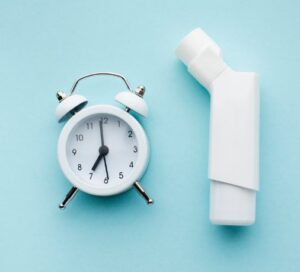
Which are the drugs that cause erectile dysfunction? Does eliquis cause erectile dysfunction? Can muscle relaxers cause ED? You might have several questions like this in your mind. Hold on; you have turned to the right page. Continue to read to get your answers.
Many medical conditions and their treatments may give rise to sexual problems. Drugs that cause erectile dysfunction include antidepressants, antiandrogens, antipsychotics, and antihypertensives. Understanding the potential for drug-induced sexual conditions and their harmful effects on adherence to treatment will enable healthcare specialists to tailor treatments for patients and their partners. Encouraging a discussion with the patient about restoring sexual function and offering strategies to manage the conditions are critical to good clinical care.
Several classes of prescription medicines contribute to sexual dysfunction in men. Patients who develop sexual dysfunction due to medicinal use are more likely to be non-adherent. This has been found with high blood pressure medicines and antipsychotics. Recreational drugs such as narcotics, alcohol, stimulants, and hallucinogens affect sexual function.
Short-term alcohol consumption affects sexual desire by reducing inhibitions but also reduces performance and delays ejaculation and orgasms. The sexual function involves sexual desire, arousal, and orgasm. Men who experience problems in any of these phases tend to have sexual dysfunction. Low sexual desire, erectile dysfunction, and premature, retrograde, or absent ejaculation affect the individual and their partners. This article lists some medicines that can cause erectile dysfunction in men and outlines some treatment options.

medications that may aggravate men’s erectile dysfunction
While they aren’t necessarily the main cause of erection issues in men, some medications may exacerbate the situation. Men should consult their physician if they believe that a potential medical illness is the cause of their erection issues. Your healthcare provider will advise adjusting the dosage or switching medications if at all possible. Unless specifically advised by their physician, a patient shouldn’t stop their treatment. The following list of medications includes several that may aggravate erectile dysfunction:
Antidepressants: A lot of antidepressants lead to problems with sex. Men with ED experience desire inhibition from selective serotonin reuptake medications and noradrenaline reuptake inhibitors. Additionally, they prevent some patients’ orgasms. Tricyclic antidepressants prevent orgasm and sexual desire. The way that certain medications work affects the way that they work.
Sex dysfunction is also associated with monoamine oxidase inhibitors. Nonetheless, reports of moclobemide use for sexual desire have surfaced.
Other antidepressants that impair sexual function include venlafaxine and mirtazapine.
Prescription drugs known as antihypertensives are used to reduce blood pressure. Although the exact cause of ED has not yet been determined, several medications may contribute to it.
Several antihypertensive drugs include:
Beta-blockers, including metoprolol and atenolol
spirolactone
Certain diuretics, such hydrochlorothiazide and furosemide
Clonidine

Antipsychotic Substances
Compared to other medicines, some antipsychotics may have a greater effect on sexual dysfunction. Men who use antipsychotic medications report having ED, having fewer orgasms, blocked or retrograde ejaculation, and having less sex interest. The majority of antipsychotic medications inhibit dopamine receptors, which results in sexual dysfunction.
Inhibitors of epilepsy
Sexual dysfunction is prevalent among antiepileptic medication users. Men’s orgasmic dysfunction has been linked to gabapentin and topiramate.
Treatment for Cancer
The impact of cancer and its treatment on the patient and their partner can have a negative impact on can have a significant negative impact on their sexual relationship. Many cancer treatments can contribute to sexual dysfunction. As common examples, long-acting gonadotrophin-releasing hormone agonists prescribed for prostate cancer result in hypogonadism, significantly reducing sexual desire and erection problems.
Medicines for Lower Urinary Tract Symptoms Benign Prostatic Hyperplasia
Men with benign prostatic hyperplasia (BPH) and lower urinary tract symptoms are more likely to experience sexual dysfunction. Although surgery and various treatments can help improve lower urinary tract symptoms, some of these therapies may also cause or worsen ED and ejaculatory dysfunction.
Other Drugs That Can Cause Sexual Dysfunction
Antiandrogens such as cimetidine, cyproterone acetate, digoxin, cimetidine, and spironolactone block the androgen receptor. They cause a reduction in sexual desire in both sexes and affect arousal.
Using steroids such as prednisone for many chronic inflammatory disorders results in low testosterone, which reduces sexual desire and causes ED. Immunosuppressive agents such as everolimus and sirolimus are widely used in kidney transplantation and can affect gonadal function, ultimately causing ED. Immunosuppressive agents such as everolimus and sirolimus are widely used in kidney transplantation and can affect the gonadal function and cause ED. Protease inhibitors for HIV cause ED in over half of men taking them. Many other medicines, including pseudoephedrine, opioids, antihistamines, and recreational drugs, may give rise to sexual dysfunction and should be discussed during the doctor’s consultation.
Can blood thinners and muscle relaxers cause ED?
Eliquis is a blood thinner that does not cause or exacerbate ED symptoms. On the other hand, muscle relaxants such as baclofen and ibuprofen may cause reduced desire and ED in men. Talk to your doctor for more information.
Techniques for Handling Sexual Dysfunction
Therapy with a professional psychologist who is more knowledgeable about sexual dysfunction is one non-pharmaceutical technique. Treatments for medication-induced sexual dysfunction have included dose reduction and drug switching, among other approaches. For men, using a phosphodiesterase type 5 inhibitor right before sexual activity has been normal practice. For most hypertensive men, it enhances erections. Men who use nitrates should not take these medications, and individuals on alpha-blockers should use them with caution as postural hypotension may occur.
In summary
Long-term pharmaceutical users might not be aware that their treatment is to blame for the development of their sexual dysfunction. Talk to your doctor right away if you think a medical problem or treatment is the source of your ED suspicions. Good clinical care requires an understanding of how an illness and its treatment affect patients and their relationships. The patient has to know how medicines affect one’s ability to conceive. By doing this, it will be ensured that patients’ spouses are aware of their sexual problems and available treatments.




